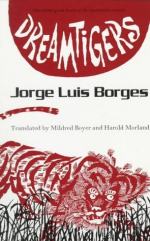|
This section contains 2,640 words (approx. 9 pages at 300 words per page) |

|
SOURCE: “The English Borges,” in the Times Literary Supplement, January 29, 1999, p. 24.
In the following review, Stavans evaluates the Andrew Hurley translation of Borges's Collected Fictions, and offers comparisons with other translations.
Jorge Luis Borges is no longer a writer but a tradition. His descendants are vital in a myriad of tongues: Danilo Kiš and Salman Rushdie, Umberto Eco and Julio Cortázar. For decades, his work in English—the language he loved most, in which he first read Don Quixote—was less a unity than a multiplicity; it was fragmented and anarchically dispersed in anthologies, translated by too many hands, the most distinguished among them Norman Thomas di Giovanni, Donald A. Yates, Alastair Reid, W. S. Merwin, Richard Wilbur, Mark Strand, John Hollander and James E. Irby. Borges himself encouraged this abundance by allowing different people to work on the same text at once. The most prominent translator...
|
This section contains 2,640 words (approx. 9 pages at 300 words per page) |

|


